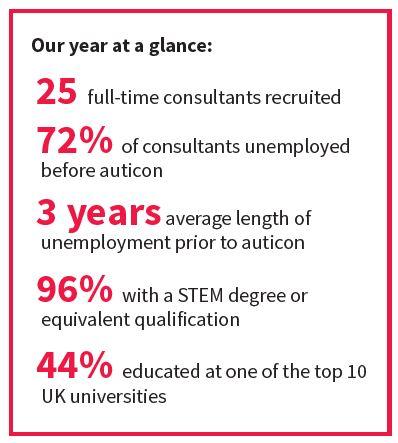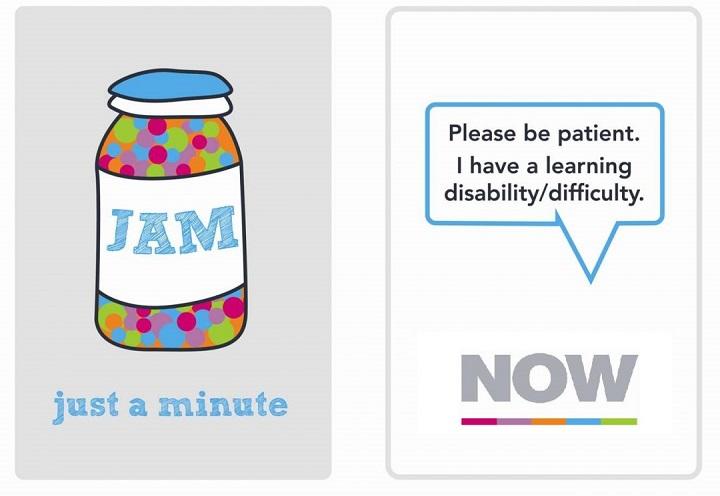
Three-quarters of staff are on the autistic spectrum in an American engineering start-up called Ultranauts.
The New York firm is aiming to promote neurodiversity and show that autism can be a competitive business advantage, its founder Rajesh Anandan told the BBC.
They don’t hire candidates based on typical CV or interview formats, but instead applicants “undergo a basic competency assessment in which they are evaluated against 25 desirable attributes for software testers, such as the ability to learn new systems or take on feedback".
This is a different approach in comparison with some large corporations that are increasingly trying to support their neurodiverse workers. Instead, Ultranauts has designed its entire business model around neurodiversity.
Neurodiversity is the word created to encompass all neurological differences, such as autism, dyslexia and Tourette’s syndrome, amongst many others. It is the concept that these differences are to be recognised and respected as any other human variation.
RELATED: W5 launches 'Quiet Room' for people with autism
Within the UK there is an IT company with a similar mantra, auticon. It classes itself as a “unique multinational consultancy” and is the first enterprise that exclusively employs adults on the autism spectrum as IT consultants. Based in London and Edinburgh, inspiration for the firm came when its German founder’s son was diagnosed with Asperger’s. There is no traditional interview process, just an aptitude test.

auticon's 2018 impact report synopsis
Does Northern Ireland need firms to adopt these sorts of hiring processes?
UK research shows that in a survey of 2,000 autistic adults, just 16% were in in full-time work, despite 77% of people who were unemployed saying they wanted to work.
Kerry Boyd from Autism NI pointed out that 47% of disabled people and 80% of non-disabled people are in full-time work, in comparison to the much smaller proportion of autistic people. She said: “The many talents of our autism community are being lost in a society that is not supporting the rich diversity found within it."
RELATED: VR therapy being used to help children with Autism
She continued: “The UK government has promised to halve the disability employment gap within the UK, meaning they have to increase the disability employment rate from 47% to 64%. So, to make sure that autistic people aren’t left behind, the government needs to commit to doubling the number of autistic people in work.”
Kerry has previously called for a national awareness programme for employers. Autism NI launched the Autism Impact Awards in 2015 to address this and to enable employers to better understand their autistic employees.
As autism diagnoses rise, so must job opportunities
Sean Hanna is programme manager at the NOW Group, which is a social enterprise focused on supporting neurodiverse people into employment and training. Sean told Sync NI a lot of their placement cohort would be people with autism or varying learning disabilities. He said: “In terms of IT and tech jobs, we work quite closely with Kainos, Citibank and Allstate NI among others. These organisations are great as they have a range of jobs for our participants.”
He added that after working in recruitment for nine years, he has seen an increase in employers being receptive to those with autism over the last four of those:
“We don’t work off commission; we just want to make an impact and change people’s lives. Employers would approach us quite a bit around supporting their current staff with autism. Once we showed our worth and value, they then came and asked to help for recruitment. No cost attached, free of charge. Within the IT sector there are a lot of jobs and people with autism working in that sector, but in terms of people actively looking for skillsets in Northern Ireland, we don’t see it.”
 The NOW Group developed the JAM card, which stands for ‘Just A Minute’. It allows people with a learning difficult, autism or any communication barrier to tell others they need ‘Just A Minute’ discreetly and easily.
The NOW Group developed the JAM card, which stands for ‘Just A Minute’. It allows people with a learning difficult, autism or any communication barrier to tell others they need ‘Just A Minute’ discreetly and easily.
RELATED: Belfast mum launches innovative autism software platform
As autism diagnosis was only introduced in Northern Ireland in the mid-1990s, those children are now coming through as adults. Kerry said they “need to be contributing to society promoting their own self confidence and we need to realise that they are a valuable and talented workforce waiting to be utilised.’
Is your organisation ready for these graduates and school children coming through?
Have you thought about the skills and capabilities that different individuals with neurodiversity can bring to the workplace?